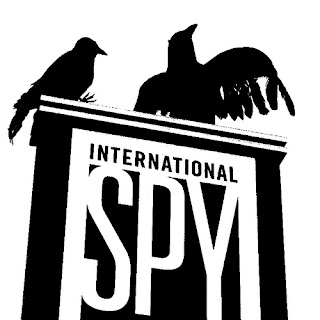 |
| Easter at midnight, Chisinau, Moldova, by Klearchos Kapoutsis, via Flickr |
In spite of all the efforts by the Ceaucescus to eliminate the influence of the Romanian church, it was alive and well in the smaller towns. We decided to attend the Easter service at midnight. We weren't able to attend, however, because of the number of people who had already arrived, filled the church, and formed a crowd surrounding the church about 10 people deep by the time we got there. I think we had all assumed the Romanian Orthodox Church was holding on by a thread, given the government's attitude towards it. Wrong!
Rather than get caught up in the crowd, we stayed back and watched as the service unfolded. Part of the Orthodox tradition involved the priest coming outside and walking around the exterior of the building three times. Because there were so many people outside surrounding the church already, he had a very large procession following him. It was a very surprising and impressive scene.
One of my students in Romania asked me if I believed in God and if I was active in a church. The conversation took place as she and I walked outside of the campus, not in a classroom or within earshot of anyone else. I replied that I believed, but that I was not active in any church at that time. I told her that I was raised within a church and that I had attended church regularly when I was in the US. She asked if I thought I would return to attending church in the future. I said that I was certain that I would if I had children because I thought it was important that parents get all the help they can to bring their children to an undertanding of values and morality in order that they learn to make the right choices as adults. This conversation was the first one I can recall where the subject of religion was completely untouched by judgment, preconceived notions, or prejudice. I felt honored that the student had felt comfortable enough to ask me what I believed to be honest questions, in search of my answers to them, not some canned answers from a textbook.
It was a little less surprising to observe the influence of the Orthodox church in Moldova nearly 15 years later. The Soviet Union had fallen, resulting in the creation of 15 new countries, each of which was finding its own way to the future, without waiting for some other power to tell them what to do.
It wasn't that everyone in Moldova suddenly began going to church or talking about their belief. It was more that what had before been a very private matter no longer needed to be hidden. When Easter arrived in Moldova I noticed that nearly everyone exchanged the greeting "Hristos a inviat" (Christ has risen) and its response "Adevarat a inviat" (he has risen indeed) in all environments, not just within the church, and continued to do so well into the following weeks. The message of Easter wasn't just a one-day observance there. It continued for the 40 days until the observance of Christ's Ascension.
There were so many events in Moldova in particular where the message I recall growing up with in the 1950s about godless Communism was proven to be inaccurate. Maybe the theory of Communism is godless, but the people who had to live under that form of government were not at all godless. Like early Christians, they may not have been able to wear the marks of Christianity openly or act or speak publicly about their faith. But they didn't abandon their faith or the traditions. When the need for circumspection went away, the practices continued openly. But no one seemed to think it required any fanfare.
Each Easter, I miss the experience of being able to continue the observance beyond the church service on Easter Sunday through saying "Hristos a inviat." I can still say it, of course, either in Romanian or English, but I just don't expect anyone to respond without curiosity or concern. Maybe I should try it this year.





+by+jotunbani.jpg)


+by+glenmcbethlaw.jpg)


+by+ocularinvasion.jpg)
+by+lisibo.jpg)
